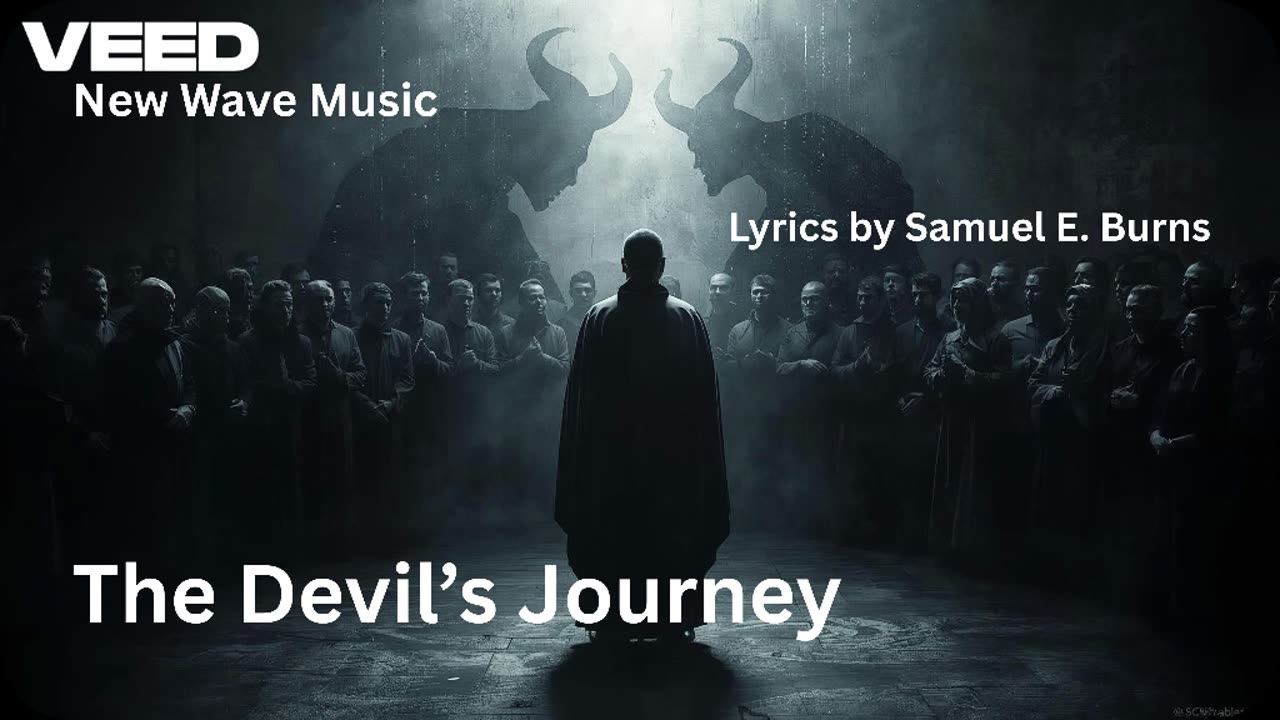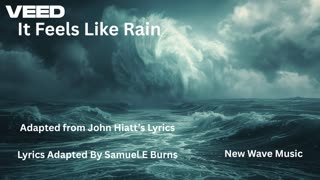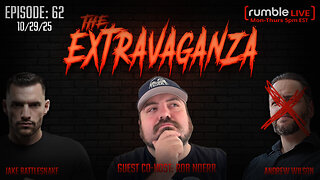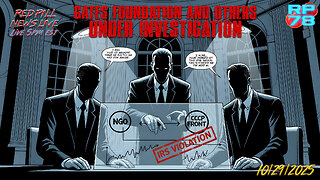Premium Only Content

“The Devil’s Journey” Lyrics by Samuel E. Burns
Samuel E. Burns continues to establish himself as a lyrical craftsman with “The Devil’s Journey,” a haunting, introspective piece that blurs the line between spiritual parable and psychological reflection. Where his earlier work “The Hunt” examined the primal instinct of survival, this song turns its gaze inward—into the tangled moral wilderness of faith, sin, and redemption.
The track unfolds like a sermon in reverse: the imagery of a priest, a gathered crowd, and whispers of the Devil conjures a traditional moral tableau, but Burns quickly dismantles it. The song’s brilliance lies in its refusal to offer easy answers. Instead of condemning the Devil, it questions the nature of evil itself—asking whether sin is born from rebellion or from misunderstanding. Lines such as “Is he evil, or just misunderstood?” and “Do we love the truth, or the comfort we find?” echo long after the final verse, challenging listeners to confront the uneasy space between judgment and empathy.
Musically (if imagined in full arrangement), “The Devil’s Journey” would lend itself to a dark folk or gothic rock atmosphere—slow-burning, minor-key, and atmospheric, with a voice carrying the weight of both sorrow and conviction. The repeated refrain “Seeking a home, a world so cold” feels like the emotional spine of the song, grounding its theological abstraction in something deeply human: the search for belonging, even in exile.
Lyrically, Burns demonstrates remarkable restraint and balance. The structure is deliberate, almost cyclical—each chorus slightly reshaping its meaning as the verses deepen. By the time the song closes with “Is the journey really over, or just starting anew?” the listener is left with a sense of inevitability: that the struggle between light and shadow, truth and comfort, never truly ends.
Ultimately, “The Devil’s Journey” isn’t a song about the Devil—it’s a song about us. It’s a meditation on the stories we tell to make sense of guilt, grace, and the gray area between them. Burns has written something that feels timeless, unsettling, and profoundly human—a lyrical sermon for a world still trying to decide what it believes.
-
 3:32
3:32
New Wave Music
12 days ago"It Feels Like Rain" — Adapted by Samuel E. Burns
411 -
 1:03:00
1:03:00
TheCrucible
2 hours agoThe Extravaganza! EP: 62 with Guest Co-Host: Rob Noerr (10/29/25)
66.4K6 -
 1:42:41
1:42:41
Redacted News
3 hours ago"Their goal is CIVIL WAR in the U.S." Americans Fighting Over SNAP Food Stamps | Redacted News
104K107 -
 1:00:21
1:00:21
Candace Show Podcast
2 hours agoWhy Isn't The Trump Family Asking Questions About Charlie Kirk? | Candace Ep 254
35K178 -
 LIVE
LIVE
Nikko Ortiz
1 hour agoREALISTIC BATTLEFIELD SIMULATOR... |Rumble Live
114 watching -
 33:34
33:34
Stephen Gardner
2 hours ago🔥Democrats are PANICKING after losing this FIGHT!!
12.5K10 -
 LIVE
LIVE
StoneMountain64
5 hours agoBattlefield Battle Royale is BETTER than I expected
113 watching -
 8:49:25
8:49:25
Viss
9 hours ago🔴LIVE - Viss & Dr Disrespect Dominate Duos In Battlefield RedSec!
25.8K2 -

Red Pill News
3 hours agoNGO’s Caught Funding CCP on Red Pill News Live
27.7K23 -
 LIVE
LIVE
GritsGG
4 hours agoDuos into Quads! #1 Most Wins 3880+!
21 watching